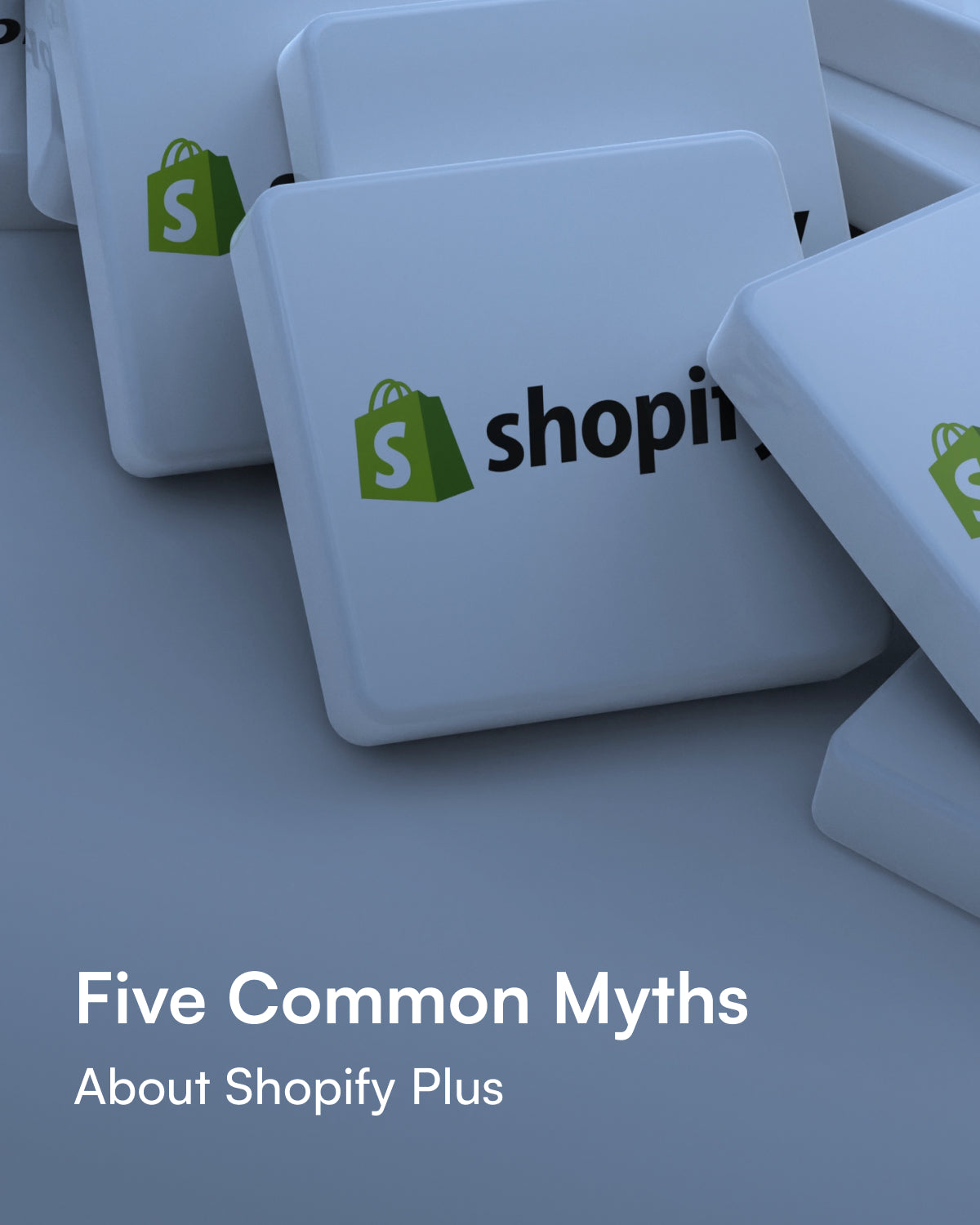Five Common Myths About Shopify Plus

Written by Rebecca Worsley, founder of Rainy City Agency
Inspired by a conversation I had on the WTF is Retail?! Podcast, I am blasting through five common myths about Shopify Plus.
If you prefer, you can also watch the full video below.
Myth 1: Shopify Plus is not SEO-friendly
There's a common misconception that Shopify lacks the SEO capabilities of platforms like WordPress, which has always been known for blogging and informational sites. But let's clear that up.
If Shopify had major SEO issues, you wouldn't see big brands like Budweiser, Gymshark, and Huel using it. Shopify can be fantastic for SEO. The platform itself isn’t the problem when it comes to organic performance; it’s all about how effectively you apply SEO strategies to your site.
And it's not just for the big players. Even if you’re a smaller or lesser-known brand, you can achieve incredible growth on Shopify with a great website and good SEO.
Myth 2: Shopify Plus has limited customisability
This is a big myth. With Shopify, especially Shopify Plus, you have extensive customisation options. For example, you have access to checkout files, allowing you to create unique checkout experiences. While lower plans don’t allow editing the checkout, the standard checkout flow is still designed to convert effectively.
The customisation options with Shopify Plus are virtually endless. You can customise front-end capabilities, build your own apps, and use third-party apps to add functionalities. Unlike platforms such as Magento and WordPress, Shopify allows you to make changes without relying on a developer for every small update.
👉 Learn more: Shopify Plus in 2024: Everything You Need To Know
Myth 3: Integrating complicated back-end systems is not possible with Shopify Plus
This is not the case. Integrating back-end systems with Shopify Plus is entirely possible. It's easier if the third-party system already has an integration with Shopify, but even when it doesn’t, creating bespoke APIs is feasible with proper testing and understanding of both platforms.
For example, we once helped one client complete a complex warehouse management system integration with Shopify Plus. Despite the project's size, we found a solution to make the systems work seamlessly together. There's always a way to integrate complex back-end systems with Shopify Plus.
Myth 4: Shopify Plus is not ideal for high-growth brands
Shopify Plus is specifically built and designed for high-growth merchants.
Brands moving from regular Shopify to Shopify Plus are typically those experiencing significant growth and increased revenue. Generally, upgrading to Shopify Plus is worthwhile when your turnover reaches at least a million dollars a year.
Shopify Plus offers automation and features that enable merchants to focus on their brand and sales, while Shopify handles the technical aspects. There is really no cap on growth with Shopify Plus; the platform evolves with your business.
👉 Learn more: What Size & Type Of Businesses Is Shopify Plus Suitable For?
Myth 5: Shopify Plus is an expensive platform
While Shopify Plus might seem pricier at first glance, it’s actually cost-effective for high-growth merchants. The savings on transaction fees for merchants generating 10-20 million or more annually often cover the cost of Shopify Plus. Additionally, you benefit from extra features and reduced credit card fees, making it a worthwhile investment.
👉 Learn more: Shopify Plus Pricing Explained

